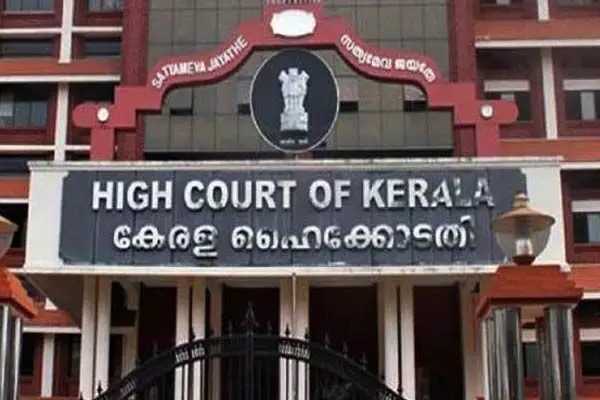- Home
- News
- Articles+
- Aerospace
- Agriculture
- Alternate Dispute Resolution
- Banking and Finance
- Bankruptcy
- Book Review
- Bribery & Corruption
- Commercial Litigation
- Competition Law
- Conference Reports
- Consumer Products
- Contract
- Corporate Governance
- Corporate Law
- Covid-19
- Cryptocurrency
- Cybersecurity
- Data Protection
- Defence
- Digital Economy
- E-commerce
- Employment Law
- Energy and Natural Resources
- Entertainment and Sports Law
- Environmental Law
- FDI
- Food and Beverage
- Health Care
- IBC Diaries
- Insurance Law
- Intellectual Property
- International Law
- Know the Law
- Labour Laws
- Litigation
- Litigation Funding
- Manufacturing
- Mergers & Acquisitions
- NFTs
- Privacy
- Private Equity
- Project Finance
- Real Estate
- Risk and Compliance
- Technology Media and Telecom
- Tributes
- Zoom In
- Take On Board
- In Focus
- Law & Policy and Regulation
- IP & Tech Era
- Viewpoint
- Arbitration & Mediation
- Tax
- Student Corner
- AI
- ESG
- Gaming
- Inclusion & Diversity
- Law Firms
- In-House
- Rankings
- E-Magazine
- Legal Era TV
- Events
- News
- Articles
- Aerospace
- Agriculture
- Alternate Dispute Resolution
- Banking and Finance
- Bankruptcy
- Book Review
- Bribery & Corruption
- Commercial Litigation
- Competition Law
- Conference Reports
- Consumer Products
- Contract
- Corporate Governance
- Corporate Law
- Covid-19
- Cryptocurrency
- Cybersecurity
- Data Protection
- Defence
- Digital Economy
- E-commerce
- Employment Law
- Energy and Natural Resources
- Entertainment and Sports Law
- Environmental Law
- FDI
- Food and Beverage
- Health Care
- IBC Diaries
- Insurance Law
- Intellectual Property
- International Law
- Know the Law
- Labour Laws
- Litigation
- Litigation Funding
- Manufacturing
- Mergers & Acquisitions
- NFTs
- Privacy
- Private Equity
- Project Finance
- Real Estate
- Risk and Compliance
- Technology Media and Telecom
- Tributes
- Zoom In
- Take On Board
- In Focus
- Law & Policy and Regulation
- IP & Tech Era
- Viewpoint
- Arbitration & Mediation
- Tax
- Student Corner
- AI
- ESG
- Gaming
- Inclusion & Diversity
- Law Firms
- In-House
- Rankings
- E-Magazine
- Legal Era TV
- Events
Kerala High Court rules on territorial jurisdiction under A&C Act

Kerala High Court rules on territorial jurisdiction under A&C Act
It relied on an earlier order of the Supreme Court
The Kerala High Court has held that the court situated within the territorial jurisdiction of the seat of arbitration alone has the jurisdiction to entertain an application filed under the Arbitration and Conciliation Act, 1996.
A single-judge bench of Justice K Babu observed that the term ‘subject-matter of arbitration’ in the definition of a ‘court’ in Section 2(1)(e) of the Act, referred to the court having supervisory control over the arbitration proceedings. It meant the court where the seat or place of arbitration was, would have the jurisdiction to entertain a challenge to the arbitral award under Section 34 of the Act.
It relied on the decision of the Supreme Court in the Bharat Aluminium Company v. Kaiser Aluminium Technical Services Inc. case. The apex court had mentioned that the court where the arbitration took place, must exercise supervisory control over the arbitral process.
The top court had observed, “The legislature has intentionally given jurisdiction to two courts, the court which would have jurisdiction where the cause of action is located and the court where the arbitration takes place. This was essential as, in many cases, the arbitration agreement may provide a seat of arbitration at a place that would be neutral to both parties. Therefore, the court where the arbitration takes place has to exercise supervisory control over the arbitral process.”
The high court also took note of the Supreme Court’s observation that Section 2(1)(e) of the Act was for the purpose of identifying the ‘court’ having supervisory control over the arbitration proceedings. This was to be determined by keeping Section 20 of the Act in mind as the word ‘place’ used in Sections 20(1) and 20(2) referred to the ‘juridical seat.’
It stated that as per Section 20(1), the parties were free to agree on the place of arbitration, and as per Section 20(2), in absence of an agreement regarding the place of arbitration, the arbitral tribunal could determine the place.
The matter pertained to a dispute between the Southern Railway and the licencee of a fruit and tea stall at Wadakkancherry Railway Station in Thrissur district regarding the licencee fee payable.
The district court appointed an arbitrator, who held the matter at Ernakulam and passed an arbitral award. Since the parties had not agreed on the place of arbitration, the arbitrator had decided on Ernakulam as the place of arbitration.
The respondent challenged the arbitral award under Section 34 of the Act before the Ernakulam District Court. But the petitioner objected to the jurisdiction of the district court to entertain the application.
However, the district court held that it had the territorial jurisdiction to entertain the application. Unhappy over it, the petitioner approached the high court.
The high court held that since the parties had not agreed on a place of arbitration and the tribunal had determined the ‘place’ of arbitration to be Ernakulam, only the district court had the jurisdiction to entertain an application under the Arbitration Act.



